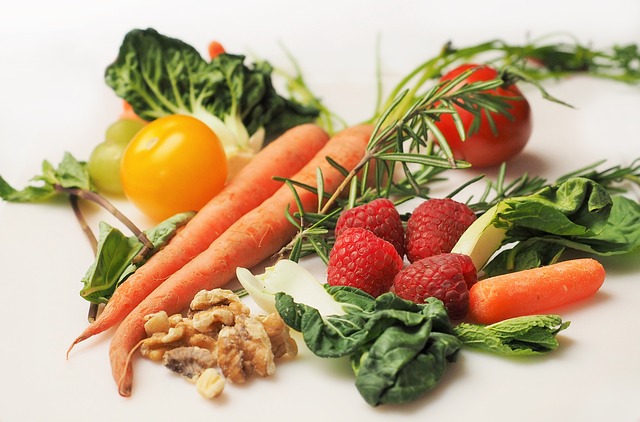We know how important a balanced diet is for our health. What some people do not know is that eating certain foods can also help to keeping our eyes healthier during the course of a lifetime. Clearly, the way in which diet can influence eye health depends very much on the starting condition of the eyes and whether or not a specific disease has been diagnosed. Indeed, while for some conditions nutrition may be a crucial factor, there is evidence that other conditions are not influenced by nutritional status at all. For example, diabetes can affect your eyes in many ways: the change in blood glucose levels can, in the long term, lead to the development of cataracts, diabetic retinopathy and eventually, diabetic macular oedema.
Are you following a balanced and healthy regime for your eye health too? Sai which foods promote healthy eyes and protect against diseases that could cause impaired vision or retinal health? Let's find out together food by food:
-the fishespecially salmon, tuna, sardines and mackerel are rich in fatty acids omega-3which can help protect against dry eyes, macular degeneration and even cataracts. In fact, fats are a necessary part of the human diet. Their function is important for maintaining the integrity of the nervous system that radiates the eye and the cells. In particular, several studies indicate that omega-3 fatty acids are important for proper visual development and retinal function;
-the green leafy vegetables (such as spinach and kale) are foods rich in lutein and zeaxantina, natural compounds that can help counteract the development of age-related macular degeneration (AMD). Lutein and zeaxanthin, like all carotenoids, are powerful antioxidants and indirectly reduce oxidative damage due to free radicals by absorbing light. Some scientific data indicate that lutein also reduces inflammation, an early pathogenetic mechanism in many eye diseases and which can affect different regions of the eye. Possible mechanisms include prevention of oxidation-induced increases in inflammatory cytokines and increased production of inflammation-related proteins;
-newnutrients contained in this valuable food, including lutein and vitamin A or retinol, can protect against dry eyes and corneal diseases;
-whole-grain cerealsthese foods contain a low glycaemic index. For those with diabetes and concomitant eye diseases, it is suggested to swap refined carbohydrates for whole-grain ones such as quinoa, rice, oats and wholemeal bread. Also vitamin E, zinc and niacin present in wholegrains help improve the health of your eyes. Zinc, for example, is a micronutrient that plays a key role in transporting vitamin A from the liver to the retina to produce melanin, a protective pigment in the eyes. Zinc is highly concentrated in the eyes, mainly in the retina and the choroid, the layer of vascular tissue that lies beneath the retina;
-fruits and berries are rich in vitamin C, which can reduce the risk of cataracts and, in general, pigmented fruits and vegetables such as carrots, tomatoes, peppers, strawberries, pumpkin and melon are good sources of vitamin A and carotenoids - the latter are the compounds that give these fruits and vegetables their colour. Carotenoids have been linked in several studies to a decreased risk of certain eye diseases; the presence of oxidised metabolites in the retina suggests that carotenoids are able to protect the eye from oxidative stress induced by light, weathering and ageing;
-pistachios, walnuts, almonds, sweet potatoes are rich in vitamin E. Vitamin E is also a powerful antioxidant and contributes to the maintenance of cell integrity and proper oxygenation of eye tissues;
-i legumes such as beans, peas and lentils are an excellent source of bioflavonoids and zinc and can help protect the retina from the damage of ageing;
-meat, a balanced intake of lean beef can increase eye health. Beef, in fact, contains high concentrations of zinc, which, as we mentioned earlier, helps the body absorb vitamin A.
Integration: when is it needed?
Most of the foods we consume through a balanced diet are sufficient to cover our daily requirements of essential nutrients. However, in situations of increased need, such as during periods of high stress and fatigue, or when we are unable to follow a healthy diet, we may consider using food supplements.
Some of these supplements may also contain a mix of molecules ad hoc for the maintenance of eye well-beingsubstances, for example, that we do not normally take regularly through our diet such as:
-the turmeric, saffron, Bromelain, Coenzyme Q10 and Boswelia with antioxidant action;
-the resveratrol, substance capable of stimulating microcirculation;
-l'astanxanthin, which, like lutein and zeaxanthin, reduces inflammation and the effects of oxidative stress.
In any case, your ophthalmologist will be able to advise you on the most suitable supplement for your condition and remove any doubts about your eye health.
Sources:
-American Association of Ophtalmology. https://www.aao.org/eye-health/tips-prevention/diet-nutrition
-Mares J. Lutein and Zeaxanthin Isomers in Eye Health and Disease. Annu Rev Nutr. 2016 Jul 17;36:571-602.
-Rautiainen S et al. Dietary supplements and disease prevention - a global overview. Nat Rev Endocrinol. 2016 Jul;12(7):407-20.
-Whitcomb EA et al. Dietary glycemia as a determinant of health and longevity. Mol Aspects Med. 2015 Dec;46:14-20
Dr. Carmelo Chines
Direttore responsabile

